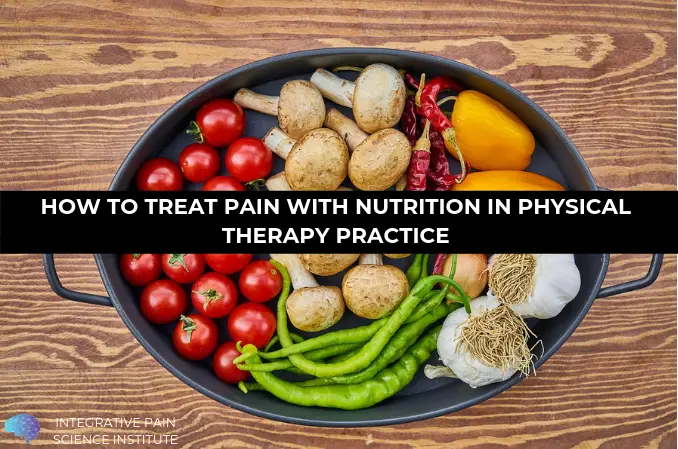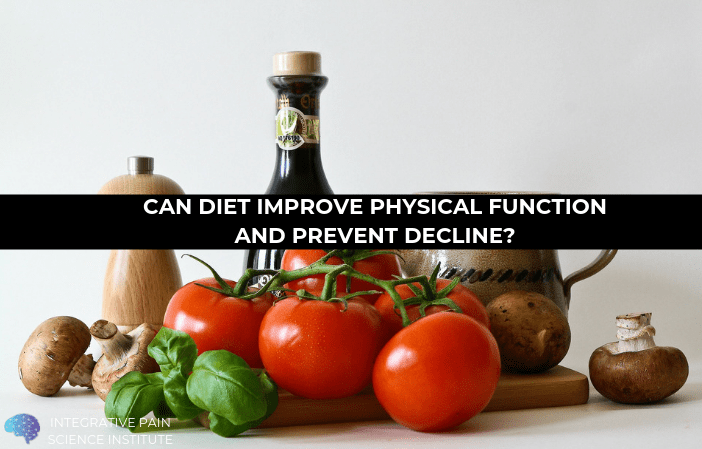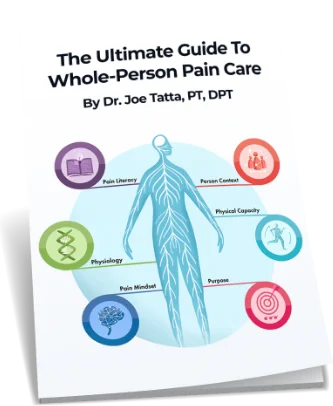Exploring physiotherapists’ beliefs about psychologically informed care

Our failure to address chronic pain naturally and safely has led to unacceptably high human, social, and economic costs. Nowhere is this more prevalent than with low back pain (LBP). Low back pain is a leading cause of disability worldwide, and a growing health concern. Globally the number of years lived with disability (YLD) due […]
How to treat pain with nutrition in physical therapy practice

Not a single week goes by without media outlets advertising the newest drug or medical procedure to treat pain. Pharmaceuticals and invasive interventions are effective first-line choices to treat acute pain. However, most don’t provide long term relief. The biomedical model focuses on treating symptoms without addressing the root cause, such as poor nutrition, sedentary […]
ACT for Pain: Defusing The Threats of Language

In a recent blog, I discussed how Acceptance and Commitment Therapy (ACT) can help a patient create a willingness approach (acceptance) to unpleasant thoughts, feelings and physical sensations (1, 2). Note: acceptance is rarely a word to use with directly with patients or loosely in the clinic. An important core process in the ACT model […]
Surgery for chronic pain: Are the benefits worth the cost and risk?

Musculoskeletal disorders such as low back pain (LBP) and osteoarthritis (OA) are among the leading causes of chronic pain and disability around the world. In 2017, LBP topped the list in terms of years lived with disability [1]. As people live longer, these conditions are becoming more prevalent, are undertreated, and the demand for surgical […]
Does Psychologically Informed Physical Therapy Work Better for Pain?

Is there more that physical therapists can do when addressing the psychological obstacles to pain treatment and prevention? One in five, or about 1.5 billion people worldwide, suffer from chronic pain (1). Despite recent medical advances, the efficacy of treatment for chronic pain does not match this widespread and costly demand. Analgesic medications, such as […]
Diet and Physical Activity: Can Diet Improve Physical Function and Prevent its Decline?

The prevalence and incidence of chronic pain and musculoskeletal-functional decline is well documented. Thus, comprehensive pain care requires a multimodal approach. Utilizing physical activity and nutrition is important in pain care, and both are core health promotion competencies. The role of the physical therapist to screen patients for and provide information on dietary and nutritional […]

